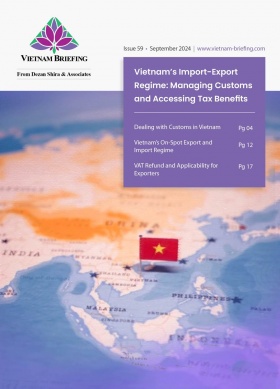Dispute Resolution Methods in Vietnam and the Advantages of Arbitration
We discuss common dispute resolution methods in Vietnam, existing legal frameworks, and challenges faced by foreign stakeholders. In particular, we highlight the advantages of arbitration in resolving business conflicts.
The necessity of dispute resolution clauses
There is a growing concern among state officials, experts, and businesses that court trials still dominate dispute resolution in Vietnam, hindering companies from achieving optimal settlements for their disputes.
Globally, approximately 90 percent of disputes are resolved outside of court. In Vietnam, although methods for resolving disputes outside of court have been in practice for more than 60 years, as of May 2023, the majority of cases are still resolved through the courts, with only around 300 cases settled via mediation and commercial arbitration each year.
Foreign businesses entering into contracts with Vietnamese entities must carefully consider the inclusion of a dispute resolution clause. Unlike in North America and Europe, where contractual obligations are closely monitored and legal enforceability is assumed, contracts referencing Vietnam must specify which institution will resolve disputes, the language of proceedings, and the applicable national law. Without such a clause, Vietnamese courts will have jurisdiction, which presents several challenges for foreign investors.
Common dispute resolution methods in Vietnam
As Vietnam further integrates into the global economy, it has become a key player in international trade with a substantial trade volume and a wide network of partners. While these dynamics create growth opportunities for Vietnamese import and export businesses, they also pose potential risks of trade disputes, which can lead to significant financial losses and reputational damage.
Available methods for resolving disputes in Vietnam include:
- Negotiation: This method does not require an intermediary and allows for direct and comfortable discussions between the involved parties to find win-win solutions for all. Although the process is flexible, less costly, and convenient, the outcome completely depends on the willingness and goodwill of each disputing party, without any legally binding mechanism to enforce the agreements.
- Mediation: This method does not aim to determine who is right or wrong for a forced settlement but rather helps disputing parties find common ground with the assistance of a neutral third party. The mediators’ or conciliators’ interference in the outcomes is still limited, and full discretion belongs to the disputing parties.
- Arbitration: This method offers a variety of benefits to all parties involved in the dispute. In addition to maintaining the flexibility and simplicity of the previously mentioned methods, it allows arbitrators to resolve conflicts, deliver optimal final judgments, and safeguard the confidentiality of the entire process. The chosen arbitrators are typically experts in their fields, possessing knowledge relevant to the subject of the disputes.
- Court trial: The most common dispute resolution method in Vietnam, court trials are highly enforceable due to state authority involvement. However, they are often considered a last resort due to their inflexibility, high costs, and lengthy process. Additionally, court rulings can be appealed, further extending the resolution timeline.
Litigation process in Vietnam
An overview of Vietnam’s litigation procedures
Vietnam follows a civil law system based on codified laws rather than judicial precedents, structured around various legal documents such as the Constitution, Civil Code, and Commercial Code. Its judiciary is independent, headed by the Supreme People’s Court, with local courts managing civil and commercial disputes, while specialized courts like the Economic Court handle complex cases.
The litigation process is divided into several stages, starting with an initial pre-litigation phase that encourages informal resolution through negotiation or mediation. If these methods fail, the plaintiff can file a lawsuit, determining the appropriate court based on jurisdiction and venue.
Once a claim is accepted, pre-trial procedures involve document exchanges and preparation for trial. The trial comprises evidence presentation from both parties, witness examination, and judicial findings leading to a judgment.
Post-trial, parties can appeal judgments to a higher court if necessary. Finally, enforcement of the judgment can be requested to ensure compliance with the court’s decision.
Challenges of Vietnamese courts
Vietnam’s legal system has improved over the years, but it continues to face several challenges that make it less attractive for commercial dispute resolution. Some of the key issues include:
- Judicial expertise: Many Vietnamese judges lack specialized legal training in complex business disputes.
- Procedural delays: Court proceedings in Vietnam can be prolonged, causing disruptions in business operations.
- Lack of precedent: Vietnamese courts do not strictly follow legal precedents, leading to inconsistent rulings.
- Limited confidentiality: Litigation in public courts may expose sensitive business matters to the public record, which could be a disadvantage for foreign companies.
- Reputational damage: The public nature of court proceedings, which can sometimes expose heated arguments and controversial evidence, may harm the public credibility of the businesses involved in the dispute.
Given these challenges, many businesses prefer arbitration as a more effective means of dispute resolution.
Growing demand for alternative dispute resolution measures in Vietnam
In Vietnam, lawmakers have yet to clearly distinguish between mediation, conciliation, arbitration, and binding versus non-binding negotiations in regulatory documents. For instance, the government is currently reviewing amendments to Decree 22/2017/ND-CP (Decree 22) on commercial mediation. Experts have noted that the decree fails to differentiate alternative dispute resolution methods—such as negotiation, mediation, and arbitration—creating confusion for all parties involved.
Another critical issue in mediation and conciliation is confidentiality. However, Decree 22 lacks provisions to ensure the confidentiality of proceedings. Additionally, there is no legal protection against the potential subpoena of mediators or conciliators in future court cases, which could undermine the validity of mediation agreements established between the parties.
Advantages of arbitration
Arbitration offers an independent, professional, and flexible alternative to litigation in Vietnamese courts. The key benefits include:
- Neutrality: Parties can select an arbitration center that both sides trust, ensuring fair proceedings.
- Expertise: Arbitration allows for the selection of arbitrators with specific expertise in the subject matter of the dispute.
- Efficiency: Arbitration proceedings are generally faster than court litigation.
- Confidentiality: Unlike court cases, arbitration proceedings remain private, protecting business-sensitive information.
- Finality: Arbitration awards are binding and enforceable under international treaties, reducing the risk of prolonged appeals.
Arbitration under Vietnam’s laws
Arbitrable disputes
According to Article 2 of Law No. 54/2010/QH12 on Commercial Arbitration (“2010 LCA”), the following disputes can be resolved by arbitration:
- Disputes between parties arising from commercial activities;
- Disputes arising between parties at least one of whom engages in commercial activities; and,
- Other disputes between parties, which the law stipulates may be resolved by arbitration.
Conditions for arbitration
According to Article 5 of the 2010 Law on Commercial Arbitration (LCA), dispute resolution by arbitration must meet the following conditions:
- Existence of an arbitration agreement: Disputes may be resolved through arbitration if the parties have an arbitration agreement, which can be established either before or after the dispute arises.
- Continuation in case of death or loss of legal capacity: If a party to the arbitration agreement is an individual who passes away or loses legal capacity, the agreement remains valid for their heir or legal representative unless otherwise agreed by the parties.
- Applicability to organizational changes: If a party to the arbitration agreement is an organization that ceases operations, becomes bankrupt, dissolves, merges, consolidates, divides, or changes its legal form, the arbitration agreement remains valid for the entity that assumes its rights and obligations, unless the parties agree otherwise.
Laws applicable to dispute resolution by arbitration
According to Article 14 of the 2010 LCA, the applicable laws for arbitration proceedings are as follows:
- Disputes without foreign elements: The Arbitration Council shall apply Vietnamese law to resolve the dispute.
- Disputes with foreign elements: The Arbitration Council shall apply the law chosen by the parties. If no agreement on the applicable law exists, the Arbitration Council shall determine and apply the law it deems most appropriate.
- Absence of specific legal provisions: If neither Vietnamese law nor the law chosen by the parties provides specific provisions related to the dispute, the Arbitration Council may apply international practice, provided it does not contradict the fundamental principles of Vietnamese law.
Choosing the right arbitration center
Businesses must consider several factors when selecting an arbitration center, including project size, enforcement risks, and cost considerations. The two primary arbitration options for foreign investors in Vietnam are:
- Vietnam International Arbitration Centre (VIAC):
- Suitable for disputes where assets are located in Vietnam.
- Offers cost-effective arbitration for small to mid-sized projects.
- Increasing credibility and recognition, though enforcement can still be a challenge.
- Offshore Arbitration (e.g., Singapore International Arbitration Centre – SIAC):
- Recommended for major projects exceeding US$5 million.
- Provides greater international credibility and neutrality.
- More effective for enforcing judgments outside Vietnam.
Considerations in arbitration clause drafting
To ensure enforceability and effectiveness, dispute resolution clauses should clearly define:
- Applicable law: Choosing a legal system that suits both parties’ interests.
- Language of proceedings: Avoiding misinterpretations in legal processes.
- Number of arbitrators: A single arbitrator may be cost-effective, but a panel may provide balanced decisions.
- Arbitrator selection: Specifying industry-relevant expertise can improve outcomes.
Investor-State Dispute Settlement (ISDS) under EVIPA and CPTPP
Foreign investors can also leverage dispute resolution mechanisms under international agreements:
- EU-Vietnam Investment Protection Agreement (EVIPA):
- Allows investors to bring disputes against the Vietnamese government to an international tribunal.
- Once fully ratified, awards will be enforceable without local court review.
- Comprehensive and Progressive Agreement for Trans-Pacific Partnership (CPTPP):
- Provides similar protections without a five-year transition period.
- Dispute resolution follows international arbitration standards under the New York Convention.
Case study: Precedent No. 69/2023/AL on the authority of commercial arbitrators
On October 1, 2023, the Chief Justice of the Supreme People’s Court issued Decision 364/QD-CA, introducing seven new legal precedents, which took effect on November 1, 2023. This decision marks a significant milestone, bringing the total number of legal precedents currently in force in Vietnam to 70.
Among these new precedents, Precedent 69/2023/AL has drawn particular attention, as it addresses disputes over confidentiality and non-competition agreements (NCAs)—a critical yet evolving issue in Vietnam’s labor market.
In the case establishing Precedent 69, an employee and employer had signed an NCA stipulating that, after the termination of the labor contract, the employee would be prohibited from engaging in similar work or competing with the employer for 12 months. The agreement also specified that any disputes arising from the NCA would be resolved through Commercial Arbitration. Nearly a year after the labor contract ended, the employer filed a lawsuit against the employee at the Vietnam International Arbitration Center (VIAC), seeking compensation for breaching the NCA.
Beyond its broader implications, Precedent 69/2023/AL clarifies the authority of arbitration tribunals in adjudicating NCA disputes between employees and employers. This precedent serves as an essential reference for similar cases in the future, contributing to the ongoing discussions on the enforcement and limitations of NCAs in Vietnam.
Conclusion
For foreign businesses operating in Vietnam, including a well-structured dispute resolution clause is essential. Arbitration provides a more efficient, neutral, and confidential alternative to Vietnamese courts. While VIAC is a viable option for domestic enforcement, offshore arbitration venues such as SIAC offer greater reliability for high-value contracts. Additionally, international agreements such as EVIPA and CPTPP enhance legal protections for foreign investors, reinforcing Vietnam’s attractiveness as an investment destination.
By carefully selecting the right arbitration framework, businesses can safeguard their interests and ensure fair resolution of commercial disputes in Vietnam.
About Us
Vietnam Briefing is published by Asia Briefing, a subsidiary of Dezan Shira & Associates. We produce material for foreign investors throughout Asia, including ASEAN, China, and India. For editorial matters, contact us here and for a complimentary subscription to our products, please click here. For assistance with investments into Vietnam, please contact us at vietnam@dezshira.com or visit us at www.dezshira.com.
Dezan Shira & Associates assists foreign investors throughout Asia from offices across the world, including in Hanoi, Ho Chi Minh City, and Da Nang. We also maintain offices or have alliance partners assisting foreign investors in China, Hong Kong SAR, Dubai (UAE), Indonesia, Singapore, Philippines, Malaysia, Thailand, Bangladesh, Italy, Germany, the United States, and Australia.
- Previous Article How Vietnam Will Implement the Global Minimum Tax: Draft Decree Guiding Resolution 107
- Next Article Vietnam’s Legal Framework for Probationary Contracts: Implications for Businesses
































